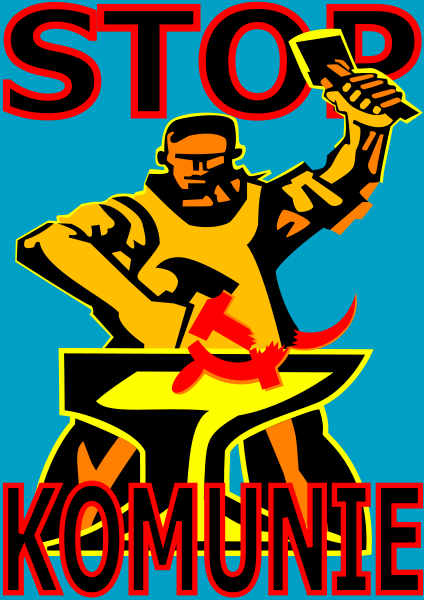On Communist Crimes, Human Rights and Overcoming the Past
March 21, 2013 -
Uve Poom
-
Articles and Commentary

424px-Stop_Communism_2.svg_.png
Two decades after the Eastern European revolutions, public education on recent history and the crimes of Communism is gathering momentum in the former Soviet Union and Eastern Bloc countries. This tendency is unlikely to fade within the next few generations, and is a highly charged issue for the people of the region regardless of whether they were victims, perpetrators or both.
The situation differs from country to country. For example, the history of education in Bulgaria is in a relatively poor state due to the persistence of the former ruling nomenclature. Moldova, for the past four decades, has had its history doctrines rewritten four times by the changing governments. In Slovenia and the Czech Republic, however, interactive learning methods that value source criticism are used to study the socialist period, through collecting family stories. Yet, in most cases it is clear that although recent history is filled with human rights violations which provide the subject its emotional connotation, educational materials and methods lack clear references to human rights.
The history of communist regimes already deserves attention for its research potential. Serious human rights violations, political developments, but also more casual topics can and should be addressed retrospectively and analytically. However, in an educational context crimes against humanity should be handled from a wider human rights perspective. This makes it possible to compose a history doctrine that is forward looking and supportive of a more open civil society.
Historical narratives shape the collective identity of a people, and events that allow one’s history to be addressed from a victim's perspective occupy an influential role in the story of one’s past. These narratives are used as building blocks for one’s identity – to affiliate with, as well as differentiate from others. If the “victim status” forms a strong basis of identification for a group, then tragic events serve just as effectively as a basis of differentiation, whether by national or ethnic boundaries. A treatment of history that is not conceptualised through the prism of universal values enhances differentiation in international and ethnic conflicts, and may lead to further confrontation.
However, it is possible to view human rights violations against a specific group through the lens of internationally established human rights norms. Furthermore, one’s history can be related to the history of others and to present day events. If the most severe historical events are discussed using the same categories they can be put into a context which allows them to be compared with and linked to similar developments elsewhere in the world. In Central and Eastern Europe and in Europe in general such an approach deserves consideration already for the purpose of understanding each other's history and avoiding placing blame on others.
But it is equally important to understand other conflicts in the past as well as at present. Common categories and shared stories generate empathy and consideration, which in turn support the development of an (international) active citizenry. In the former Soviet Union and Eastern Bloc countries people often see no further than their own back yard or their neighbours' gardens at best. We have never built empires and have for a long time been cut off from the world. This keeps us, mentally, in the periphery.
Dealing with communist crimes within the context of human rights would meet several objectives. On the one hand, it would reduce the temptation of one nation to monopolise their suffering and would make it a matter of national honour without forgetting the suffering. On the other hand, it would help to create a more responsible citizenry that interprets the world through their own story, but at the same time wishes to offer help in today's crisis spots. Such a shift in thought would open up and strengthen our societies.
But this change, as Jaan Kaplinski (an Estonian poet, philosopher, and culture critic – editor's note) has put it, requires conquering history. The pursuit for it, however, is a worthy one, because otherwise history will conquer us.
This text was previously published in Estonian on the Open Estonia Foundation's blog and the daily newspaper Postimees, and is republished by kind permission.
Uve Poom is the CEO of the Unitas Foundation and runs the Baltic Sea region history education project Different Nations – Shared Experiences. He holds a BA in Adult Education with a minor in Project Management. For more information on Unitas Foundation, please navigate here.


































